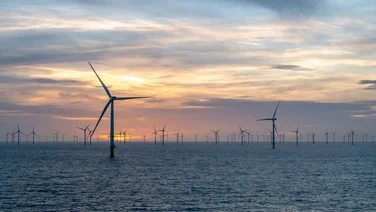We receive a small fee from trusted installers when you request a quote through our site. This helps us keep our content independent, well-researched and up to date – Learn more
After a record-breaking election for the Green Party – gaining almost 100 seats – many are questioning whether this is only the beginning of the party’s popularity.
Sian Berry, the party’s co-leader and candidate for Mayor of London, tweeted a video with delight celebrating her “really strong third place”. She managed just shy of 200,000 first-preference votes – double the party’s total in 2012.
Jonathan Bartley said the party’s strong performance in areas such as Bristol – where it is now the joint-largest party – showed it could no longer be dismissed as a wasted vote. He told The Guardian:
“We’re moving from being the biggest small party to being one of the big parties. We’ve been polling ahead of the Lib Dems and we’ve seen in this election that there are no no-go areas for the Greens.”
Green Party highlights in the 2021 election:
- Highest ever vote in London with 3 Greens elected to the London Assembly
- Highest ever Senedd Cymru Green vote share at the regional level
- Greens in first place across Bristol West and Sheffield Central constituencies
- Gained representation on 18 councils, bringing the total tally of councils with Green representation to 141
- Gained 99 seats – now 445 councillors across England and Wales
- Won 24 seats on Bristol City Council – now joint largest party with Labour
What impact could this have on the UK?
Let’s get one thing straight, with over 5,000 seats on offer, the Green Party’s 99 gained seats isn’t going to make a huge difference – but it’s a big win for the party.
For now, it’s a win to have more Green MPs as part of the decision-making process. And if this upward trajectory continues, the UK can expect a greater change in a lot of areas – not just the environment.
Some of the Green Party’s recent policies include:
- Setting targets to solve the climate and ecological emergency before 2030
- Making all London transport zero carbon and non-polluting by 2030
- Preventing the loss of council housing by giving more residents the power to vote against demolition
- Supporting mental health services, making it equal to physical health in importance
- Protecting civil liberties and pushing back on police powers
- Bringing more diverse voices into decision making
- Creating green jobs to make, re-use, and repair more of the goods and services needed locally
What has triggered this trend?
There are two major things encouraging this trend. Mainly, people are worried about the climate crisis – and frustrated about the lack of focus on it from the government.
On top of this, there are influences outside of the party that are pushing people in the Green direction. Jonathan Bartley, co-leader of the party, said the Green Party gained support from Labour voters who felt “disillusioned with the authoritarian Blairism” of Keir Starmer. Some Tory voters are also switching to the Green Party, which mostly stems from environmental concerns raised by the likes of David Attenborough.
This trend doesn’t only apply to the UK – other European countries are also going Green. The Green Party has been popular in Germany for quite some time. The former leader of the party Joschka Fischer was even foreign minister and vice chancellor in the 1998 to 2005 coalition government with the Social Democrats (SPD).
More recently, Austria and Switzerland have been showing their support for the Greens, and now, it seems, the UK is following in their footsteps.
Summary
Last year, YouGov revealed that almost a third of voters (32%) said they voted tactically in the 2019 general election – up from around one in five two years earlier. This means that more voters feel they have to vote for the ‘lesser evil’, rather than the party they actually want to.
Perhaps this recent election suggests people might be sidestepping this rule – taking a risk by voting for a party they truly believe in. There’s power in numbers, and Green support is certainly growing.






